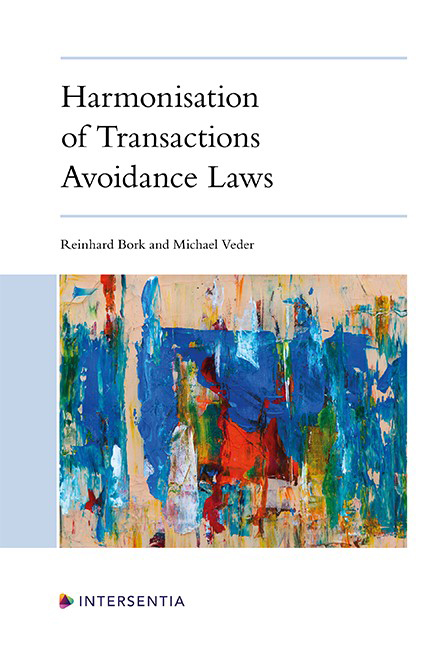France
Published online by Cambridge University Press: 26 May 2022
Summary
PART 1. DETAILS OF YOUR NATIONAL TRANSACTIONS AVOIDANCE LAW
French law distinguishes two types of transactions avoidance:
– Voidance by operation of law (Nullités de droit): where the legal prerequisite on the nature and date of the transaction are not met, the court has no discretion and shall declare the transaction void. No mental element (i.e. knowledge of the insolvency) is required from either the debtor or from the contracting party.
– O ptional voidance (Nullités facultatives): the court exercises its discretion and may declare the transactions void according to the circumstances, and in particular where the debtor or the party performing the transaction was aware of the insolvency of the debtor.
Please note that in both cases, the court has to declare voidance. Voidance by operation of law is not automatic. A voidance claim must be brought by the Insolvency Practitioner.
Such distinction will be often referred to in the questions hereafter.
I. SYSTEM
Question 1. Is your transactions avoidance law (for terminology cf. Introduction at C.) part of insolvency law or is it in parts or as a whole incorporated in other fields of law (e.g. general civil law, commercial law, company law)?
Transactions avoidance rules are provided for by Art. L. 632-1 to L. 632-4 of the French commercial code. They are wholly included in insolvency law whose provisions themselves are part of commercial law (Book VI of the commercial code).
Question 2. Are the rules on transactions avoidance law in your jurisdiction the same for entrepreneurs/legal entities and consumers/natural persons? If not, please explain the differences and take it into account when completing this questionnaire.
Rules on transactions avoidance law are the same for all private legal entities, and for all natural persons practising a commercial, craft, agricultural or other independent professional activity, including regulated activities.
There are no specific transactions avoidance rules for the insolvency of consumers.
Question 3. Are the rules on transactions avoidance law in your jurisdiction the same for liquidation and restructuring proceedings (if any)? If not, please explain the differences and take it into account when completing this questionnaire.
- Type
- Chapter
- Information
- Harmonisation of Transactions Avoidance Laws , pp. 809 - 834Publisher: IntersentiaPrint publication year: 2022



